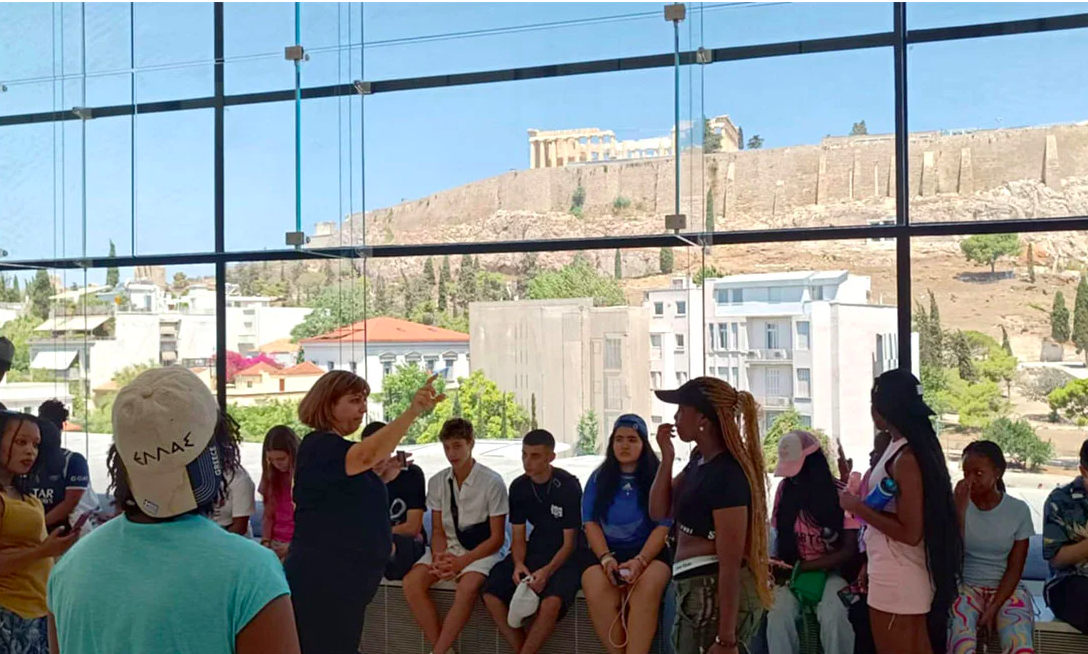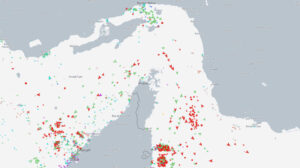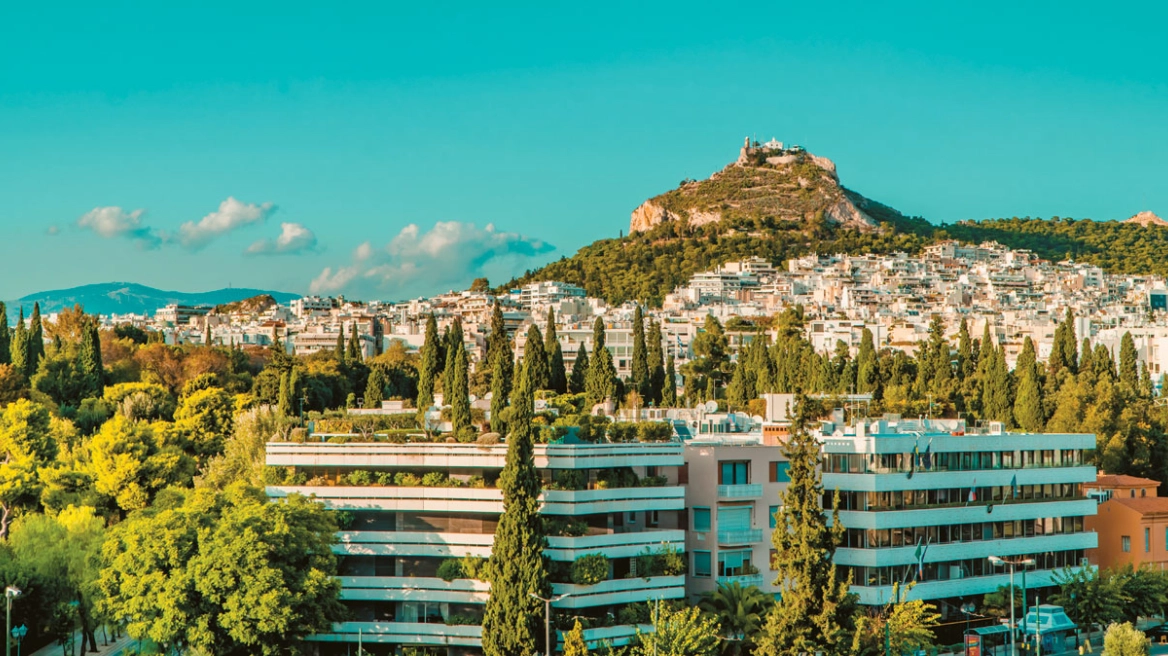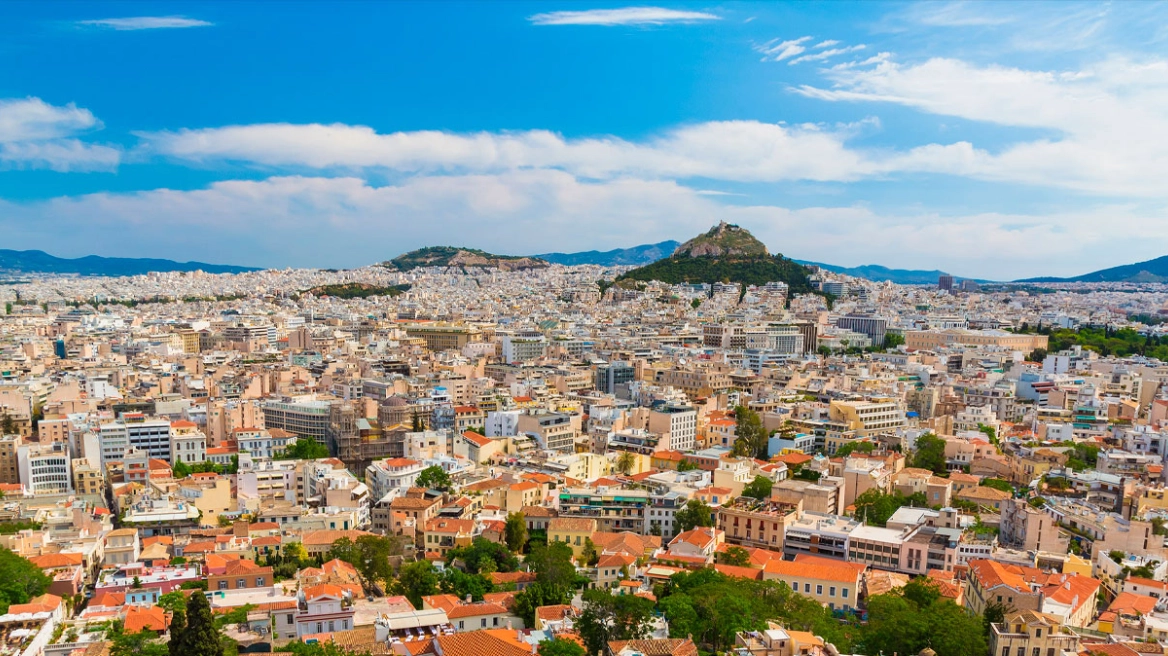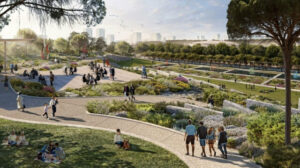For the first time in our country, a camping program for 50 children aged 13 to 18 from the Greek diaspora in Brazil and Tanzania was held with great success.
The initiative was organized by the General Secretariat for Greeks Abroad and Public Diplomacy of the Ministry of Foreign Affairs in collaboration with the Municipality of Athens, following a related initiative by diaspora and educational organizations from the two countries.
“My grandmother lives in Mytilene; my uncle and I travel all over the country. This time, however, I saw Greece through different eyes,” says 17-year-old Anna Maria, who lives in Tanzania. She has visited Greece at least five times and participated this year in the camping program organized by the General Secretariat for Greeks Abroad. As she told protothema.gr, “We visited many interesting places, but I especially loved Olympia. We learned a lot about the ancient and modern Olympic Games. The facilities at the Olympic Academy were wonderful.”
The impressions of the 50 young beneficiaries of the program were truly the best, and just before their departure from Athens, the young diaspora members said they were ‘gifted’ with lifetime memories.
Evelyn, 15 years old, who attends the international school ‘Saint Constantine’ in Arusha, Tanzania, despite not having any ancestral ties to Greece, “learned” about Greece from her Greek classmates, as the school belongs to the Greek community of Tanzania. “Before coming, I knew about Greece’s beaches, mythology, and that democracy was born here – one of the fundamental values of our lives. The trip to Greece was like a ‘cultural reboot.’”
Program Content
As part of their fifteen-day free stay, the children participated in educational and cultural activities, visits to archaeological sites and museums, as well as day trips to nearby destinations. They visited Ancient Olympia where they had a very interesting three-day educational program at the facilities of the International Olympic Academy, with lessons on history and culture. The presentation of the Olympic Education program was made by the director of the National Olympic Academy (ETHNOA), Denise Panagopoulou, a tennis champion and member of the National Team.
“I appreciate all the efforts made for us to enjoy this trip. I found it truly exciting and learned a lot. The visits to the sights were particularly interesting, especially in Olympia – despite the heat. Since I am involved in sports, it was amazing to be at the ancient stadium. The unique feeling of being in the same place where athletes of my age were thousands of years ago… made me almost hear their speeches and feel their presence,” shares 16-year-old Mark from Tanzania. Evelyn similarly describes her experience in Olympia: “I was impressed that in ancient times, sports were the center of social life. The dedication of the athletes to their purpose was admirable. I understood that the Olympic Games were something like a ‘religious’ event in ancient times. It was truly exciting to have the opportunity to be at the ancient stadium – I imagined the ancient athletes being in the same space and competing. Because you might learn the history and read about it, but when you are in the place, it feels more ‘real.'”
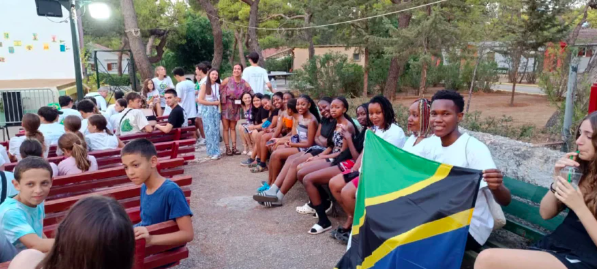
The children also visited the Sacred Rock and the Acropolis Museum. They watched a screening at the Eugenides Foundation Planetarium. They familiarized themselves with the Greek language and culture through experiential learning and play, via the Educational Action “Playing and Communicating in Greek,” which is being implemented this year for the first time in collaboration with the University of Western Macedonia, by a team of students under the supervision of Vice-Rector, Professor Eleni Griva.
“It is a pure cultural exchange between students,” points out Mr. Nikos Kommatas, an educator who serves at Saint Constantine School in Arusha and accompanied the children on the trip. “This is the second time we are coming with students from Africa to Greece, but last year we organized everything ourselves. This year, we came through the program of the General Secretariat for Greeks Abroad, which proved to be excellent. We are grateful because we were able to carry out this trip, although we would have expected better conditions at the Athens Municipality’s campsites, which need maintenance. However, the hospitality was wonderful, and free, and those who participated were thrilled – how many children their age can travel for so many days to another continent?”
Regarding the children’s expectations of Greece and whether their trip met those expectations, Mr. Kommatas says: “They saw a country that far surpasses their own in infrastructure – in Tanzania, roads are like they were here in the 1960s, as seen in Greek films. The children also appreciated being able to walk outside freely and safely. As for the support of the General Secretariat, it was continuous and their interest was sincere.”
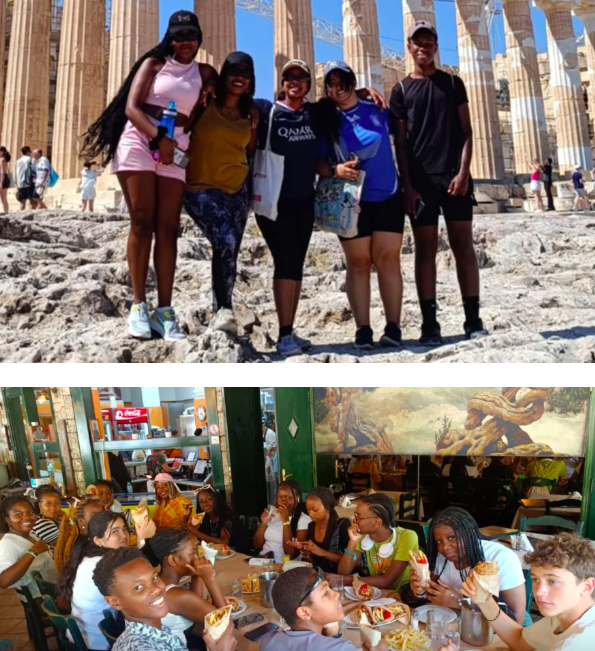
The General Secretary for Greeks Abroad and Public Diplomacy of the Ministry of Foreign Affairs, Mr. Giannis Chryssoulakis, stated regarding the importance of the program for the diaspora children:
“The philosophy of this hosting action is characterized by elements and images of a timeless journey through history, culture, architecture, as well as the language and culture of Greece.
The young people from the diaspora in Brazil and Tanzania had a unique opportunity to gain experiential contact with our country, to discover the sights, culture, customs, and natural beauties of Attica and the surrounding islands.
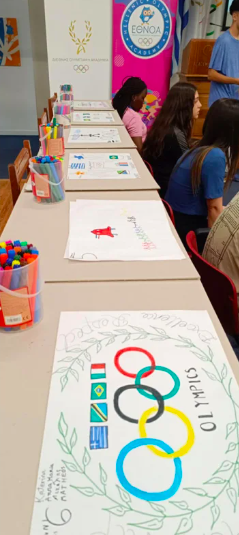
At the same time, they had initial contact with the Greek language, as well as with the Olympic Ideal, fundamental elements of Greek culture with unparalleled value and global reach.
We wish and strive for the participants to return to their countries of residence with a strong imprint of Greece in their souls and memories, and with a renewed relationship with the homeland of their ancestors.”
This initiative is part of the broader design and implementation of hosting programs managed by the Ministry of Foreign Affairs and in collaboration with the Municipality of Athens, based on the five-year Memorandum of Cooperation signed in 2024 by Deputy Minister of Foreign Affairs, Mr. Georgios Kotsiras, and the Mayor of Athens, Mr. Charis Doukas. The memorandum provides for the annual hosting of 200 Greek diaspora children in the children’s camps maintained by the Municipality of Athens in Saint Andrew, Attica.
Regarding the Prospects of Studying in Greece
“If I improve my Greek, I would like to come for Pedagogy studies at Aristotle University in Thessaloniki. I’ve heard it’s a fantastic university! The volunteers who accompanied us and are students there suggested it. Besides the studies, I’ve heard great things about student life, food…” says Anna Maria, while Mark adds about the possibility of returning to our country for studies: “Although I haven’t looked into study programs yet, I understand that excellent opportunities are offered – both academic and athletic. I feel that Greece would be a wonderful place for personal and student development. Allowing international students to come here for studies would enhance diversity and social integration.” Evelyn adds: “In Greece, there is a lot of ‘space’ to express yourself. It’s a country that could be interesting as a place of study – I would seriously consider studying here if there were English-speaking departments – I want to follow Law.”
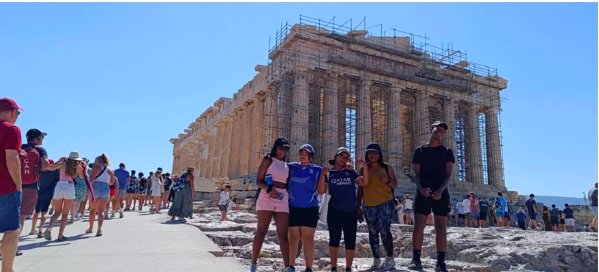
“Some children asked me about universities, whether there are English-speaking programs to come for studies,” notes Mr. Nikos Kommatas, the educator, and continues: “The Greek community of Tanzania is trying to reconnect Tanzanian Greeks with Greece because they have been disconnected for many years. We have started a systematic effort as the Greek community of Tanzania to connect with the homeland, for the children remaining there to understand what Greece, Greek culture, and the Greek language mean. Programs like this one help us a lot. And hopefully, in the future, we can send students for studies here once more English-speaking departments are available. Our intentions combined with the outward-looking approach of Greek universities are the best for us Greeks coming from all over the world. Why should our children go to other countries and not come here?” he concludes.
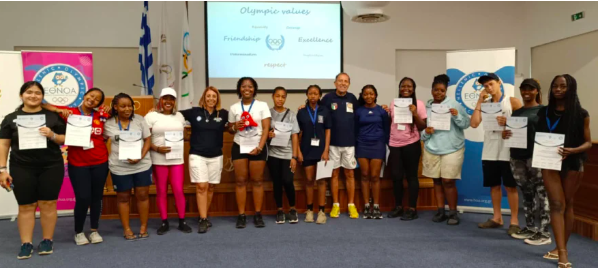
Ask me anything
Explore related questions
